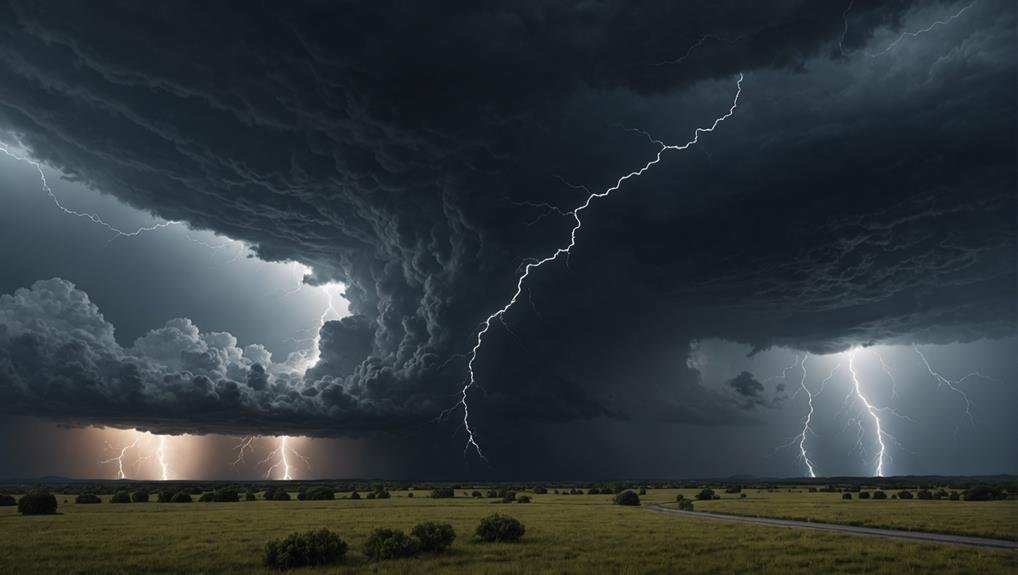Unraveling the Power of Force Majeure
Understanding the power of force majeure involves exploring its legal framework and complexities. Originating in French law and now intersecting with Common Law, force majeure addresses exceptional events affecting contract performance. Proving unforeseeability of events, like natural disasters, can be challenging in enforcing force majeure clauses. It's essential to comprehend the elements, purpose, and implications of force majeure amidst events like the COVID-19 pandemic. By unraveling its significance further, one can grasp its pivotal role in safeguarding contractual obligations. Further exploration into this topic will provide a deeper insight into its applications and implications.
Key Takeaways
- Force majeure's power lies in protecting parties from unforeseen events.
- It helps allocate risk fairly and allows for contract flexibility.
- Clear clauses are essential to manage obligations effectively.
- The purpose is to avoid breach of contract by suspending or terminating obligations.
- Its importance is highlighted during events like the COVID-19 pandemic.
Force Majeure Definition and Origin
The definition and origin of Force Majeure lie at the intersection of contract law and unforeseeable catastrophic events, shaping legal frameworks globally. Originating in French law, Force Majeure has evolved to be recognized in various legal systems, including Common Law jurisdictions. Its evolution reflects the need to address unforeseeable circumstances that may hinder contract performance.
In French Law, Force Majeure is deeply rooted in the Civil Code, providing a framework for parties to address exceptional events beyond their control. Common Law systems, on the other hand, often require specific triggering events to be outlined in contracts for Force Majeure clauses to be invoked. This intersection of legal traditions highlights the adaptability and importance of Force Majeure in modern contract law.
Legal Implications and Challenges
Traversing the legal landscape surrounding Force Majeure presents a myriad of implications and challenges for contract parties and legal practitioners alike. Proving foreseeability of events can be a significant hurdle when invoking force majeure clauses.
Contractual defenses, often centering on unforeseeable circumstances, play a vital role in determining the validity of force majeure claims. Challenges arise in demonstrating that the events leading to non-performance were truly unforeseeable at the time of contract formation.
Legal practitioners must navigate through past occurrences and evolving legal interpretations to assess the applicability of force majeure provisions. In international tribunals, most force majeure defenses tend to falter, emphasizing the complexity and rigor required in establishing a successful defense based on force majeure.
Example and Impact Analysis
Examining a notable illustration and its consequential effects sheds light on the practical implications of force majeure clauses in contractual agreements.
For instance, consider a scenario where an avalanche destroys a supplier's factory, resulting in significant shipment delays. In this case, the inclusion of specific events like natural disasters in the contract strengthens the supplier's force majeure defense.
The impact of such an event on the supplier relationship underscores the importance of clear and thorough force majeure clauses. Legal interpretations may vary by jurisdiction, making it essential for parties to understand the implications of force majeure events on their obligations, potential renegotiation opportunities, and the financial consequences that may arise from such unforeseen circumstances.
Elements and Purpose Clarification
With a focus on elucidating the fundamental components and objectives of force majeure clauses, this discussion explores the intricate details surrounding their formulation and intended outcomes. The elements of a force majeure clause include a defined list of events, unforeseeable circumstances, causation of non-performance, impacts on obligations, and requirements for notice. These elements are significant as they help in clarifying the contractual risk allocation considerations. The purpose of such clauses is to protect parties from unforeseen events, allocate risk fairly, allow for contract flexibility, avoid breach of contract, and suspend or terminate obligations. Contracts with specific force majeure definitions fare better legally.
| Elements | Purpose |
|---|---|
| Defined list of events | Protect parties from unforeseen events |
| Unforeseeable circumstances | Allocate risk fairly |
| Causation of non-performance | Allow for contract flexibility |
| Impacts on obligations | Avoid breach of contract, suspend or terminate obligations |
Force Majeure Amid COVID-19
The impact of the COVID-19 pandemic on global business operations has brought heightened attention to the application and interpretation of force majeure clauses. Companies worldwide are facing challenges in fulfilling contractual obligations due to the unprecedented disruptions caused by the pandemic. Legal disputes are arising as parties assess whether the effects of COVID-19 qualify as force majeure events, excusing non-performance.
Clarity in force majeure clauses is vital to maneuvering these uncertain times, ensuring that obligations are managed effectively in the face of unforeseen global disruptions. As businesses grapple with the implications of the ongoing crisis, the role of force majeure in addressing contractual issues amidst the pandemic serves as an essential aspect in safeguarding commercial interests.
Conclusion
To sum up, the enigmatic force majeure clause stands as a formidable shield against unforeseen calamities in contractual agreements. Through its intricate legal mechanisms, it navigates the complex terrain of obligations with finesse and resilience.
In times of crisis, like the COVID-19 pandemic, its power is magnified, offering a semblance of order amidst chaos. As we unravel the layers of force majeure, we uncover a paradoxical blend of protection and uncertainty, shaping the contours of contractual relationships with a touch of irony.







